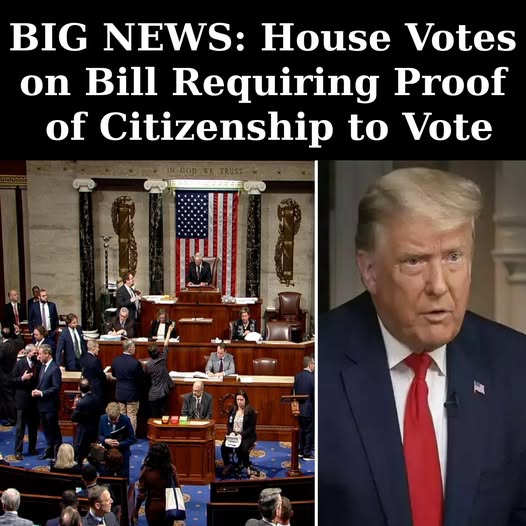In a vote that highlights America’s deep partisan divide over election policy, the Republican-controlled House of Representatives has passed the Safeguarding American Voter Eligibility (SAVE) Act, a significant piece of legislation aimed at requiring proof of citizenship for voter registration in federal elections. The bill, which cleared the chamber by a narrow 220-208 margin on Thursday, now faces an uncertain future in the Senate, where it will require bipartisan support to overcome the 60-vote threshold needed for passage.
The legislation represents a key priority for President Donald Trump, who has consistently advocated for stricter voter eligibility requirements throughout both his administrations. If enacted, the bill would fundamentally alter the voter registration process nationwide by establishing federal standards for citizenship verification—a dramatic shift from the current state-controlled system that has governed American elections since the country’s founding.
The SAVE Act, introduced by Representative Chip Roy (R-Texas), contains several provisions that would significantly change the process of registering to vote in federal elections across the United States. At its core, the legislation would:
